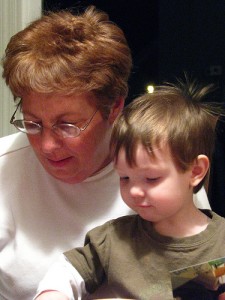When Husbands Travel
Christy’s post last week got me thinking about our family dynamic. My husband works close to home (and even from home, occasionally), but he also does a LOT of traveling for his PhD studies. He’ll be gone for anywhere from ten days to twelve weeks at a time. The traveling can be difficult for him, with frequent travels through international airports (and their security), sleeping on couches at friends’ houses, and eating out every day (which he hates doing). I’ve also witnessed how it has affected our children.
It’s hard on us when our husbands have to leave on business (or TDY), but it can even be harder on the kids. When kids are young, they have little or no concept of time. Saying “daddy will be home in ten days” or something along those lines just doesn’t register with them. The first time my husband left us to do some PhD work at his university (in another country), he was gone for over two months. Ten weeks? Seventy days? How was I supposed to explain this? My four year old could only count to twenty! Fortunately, I have a dear friend who was stationed overseas a couple of years ago, and during that time, her husband was deployed three times. Her kids were also very young at the time, and she gave me some very helpful advice to get me and the kids through those very difficult weeks away.
Make a “daddy” book: Create a mini photo album filled with pictures of dad playing and interacting with the kids. Let the kids carry them around, or prop it up next to their bed at night, so daddy’s right there with them. Some parents have put pictures of their spouses on the kids’ pillowcases (which you can order from Snapfish).
“Count” down the days until dad gets home: Whenever my husband leaves, whether it be for a few days or weeks, we create a Jellybean Countdown Container. As you can probably guess, we take an old jar and fill it with jellybeans, and the number of treats corresponds with the number of days that my husband is gone. The kids get one jellybean out of the jar every day, and that way, they know that daddy’s coming home when the jar is empty!
Let the kids use things that smell like dad: I would let my son use dad’s cologne if he wanted to smell like daddy. Just dab a little on his wrist or spray his shirt, and he was good to go. I, too, would occasionally use his cologne, spray one of his flannel shirts, and sleep in it at night.
Give them “kisses” from daddy: As an extra comfort measure, I would fill a jar with Hershey’s Kisses and place it on top of the counter. Any time the kids got hurt or really sad, they would get a “kiss” from dad.
Skype before bed: If your husband’s involved with the kids’ bedtime routines, arrange for him to call around bedtime. He can tell the kids a story (or, in our case, my son can tell HIM a story), sing them a song, etc. If your husband is in a place where he can’t do this, have him record a few videos reading the kids’ favorite books. Then, play the videos at night so daddy can read them a story before bed.
Does your husband travel a lot for work? How do you handle this time in your house?
Related posts:
Trina’s post about being a (temporary) single mom
Share the fun: Email + Del.icio.us + Digg + Technorati

 When I was in college, I started a job at a pediatric dental office. I continued working there after I graduated, until we moved overseas. I did a lot of admin stuff as well as chair-side (assisting the hygienist or the doctor), and I loved how so many parents brought their kids to our office and asked great questions about dental health. Here are a few things I learned from the doctors during my years there:
When I was in college, I started a job at a pediatric dental office. I continued working there after I graduated, until we moved overseas. I did a lot of admin stuff as well as chair-side (assisting the hygienist or the doctor), and I loved how so many parents brought their kids to our office and asked great questions about dental health. Here are a few things I learned from the doctors during my years there: Most of us have been there. We arrive at Grandma and/or Grandpa’s house for a week long visit, only to find ourselves in a precarious situation. Why? Because your parents (or your spouse’s parents) are standing at the door, greeting your kids with one or more of the following:
Most of us have been there. We arrive at Grandma and/or Grandpa’s house for a week long visit, only to find ourselves in a precarious situation. Why? Because your parents (or your spouse’s parents) are standing at the door, greeting your kids with one or more of the following:

